Confederate Truths: Documents of the Confederate & Neo-Confederate Tradition from 1787 to the Present.
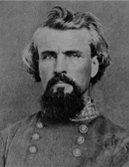

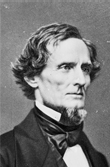
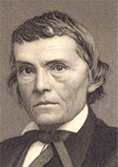

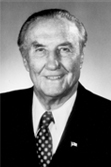
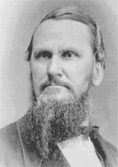
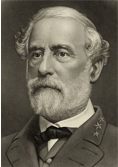
1928 Tennessee Division United Daughters of the Confederacy Praise the Ku Klux Klan and Anglo-Saxon "Purity"
In 1928, "The South in American Life and History," by Fannie Eoline Selph was published. In the front piece it is described as "An effort of the Nashville Chapters of the United Daughters of the Confederacy, approved by the Tennessee Division, to present the true spirit and achievements of the South's civilization through the different periods of her history, …" On page 372-4, Selph makes clear that the achievements of the Klan are the achievements of the Confederate veterans and a triumph of Anglo-Saxon supremacy.
The Ku-Klux Klan
The Ku-Klux Klan was a creation born of necessitous times and brought help to the South in her hour of dire distress and furnished relief that could have come in no other way.
Pulaski, Giles County, Tennessee, was the birthplace of the Ku-Klux Klan, which came into being and was perfected during the winter and spring of 1866. This town was noted for the culture and refinement of its people, a town of schools and colleges and churches, of the most elevating social, religious, and educational influences, and not a community that would likely produce cutthroats or desperadoes or engender an organization with low, ignoble, or evil purposes. Amid these environments, the Ku-Klux Klan originated and was started on its great mission to protect the Southland, to rescue it from its enemies, and place it on the highest plane of caucasian civilization. Pulaski always remained in a way headquarters for the Klan, as many of its prominent officers and members and all of its originators lived there.
The charter members were men of moral and social standing, of intelligence and sterling character, and all had served their country during the four years of war and had honorable records as Confederate soldiers. They first organized as a social club to hold meetings for recreation and social intercourse.
They were confronted with the fact that the newly acquired freedom of the negro, this sudden elevation to power, and the bad advice given him by carpetbaggers were making of him a very undesirable and dangerous citizen. These men understood perfectly the characteristics of the negro; they knew that superstition entered largely into his makeup and through this dominating element they would be able to control him.
So the Ku-Klux Klan made the negroes believe that they, the Klansmen, were the spirits of their dead masters who had come direct from the spirit world to admonish them for their wrongdoings and to punish them if they refused to obey. The effect was wonderful. The anticipation of a visit from these "ghosts" would subdue even the most maliciously inclined.
All that was weird, mysterious, and awe-inspiring in costumes, conversations, in signs, and passwords was used by these midnight riders.
The significant name "Ku-Klux" was really coined by the charter members. It suggested the Greek word "Ku Klos" meaning a circle, and later Klan was added, making the three K's, or "Ku-Klux Klan," which became so historic and significant. "The Invisible Empire," another name for the Klan was used. Many ruses were adopted by the Klansmen to scare the negroes into submission, and they always had the desired effect. For instance, such as asking for a drink of water and disposing quickly of several bucketfuls at a time, the Klansman remarking that "it was the first drink he had had since the battle of Manassas or Shiloh" or some other famous battle, when in reality the water went into a rubber bag concealed beneath the costume. They would also remove their heads and hand them to the negroes to hold while they were drinking water. This was done by having a skull on top of the head, which was covered by a sheet. Then oftentimes they would offer to shake hands and ride off, leaving a skeleton hand with the negroes as a pleasing souvenir of their visits. This and many other devices that only a Ku-Klux could conceive of, aroused such terror among the negroes that they would flee to the woods.
The titles of the officers of the organization were all weird and uncanny such as "Grand Wizard," "Grand Dragon," "Grand Giant," "Grand Cyclops," and many others, and the private members were called "Ghouls."
The costumes were made by the devoted women of the Southland—their wives, mothers, and swethearts—who were always in the confidence of the Ku-Klux Klan. They were made with their own fingers and concealed in some specified place, where the Klansmen knew to find after nightfall.
Gen. George W. Gordon, of Confederate fame, was one of the Klan's early and wise leaders. He prepared the oath and ritual for the Klansmen and furnished a safe chart for them to follow in their dangerous work. In the fall of 1866 the Klan had spread with amazing rapidity, covering nearly all the Southern States, and Gen. Nathan Bedford Forrest, the great Confederate cavalry leader, was made "Grand Wizard of the Invisible Empire." The oath was administered to him by Capt. John W. Morton, afterwards Secretary of State of Tennessee, in Room No. 100 of the Maxwell House, Nashville, Tenn. The Klan moved forward in its great work of rescue and protection. In 1869 General Forrest gave the order for disbandment, believing that the mission of the Klan had been accomplished, and the mighty Invisible Empire, not by force, but voluntarily disbanded. The Ku-Klux Klan's great achievements were: the inevitability of Anglo-Saxon Supremacy; the virtue of the courage and patriotism of the Confederate soldier; and that at last, "truth will prevail."
Selph doesn't use "Anglo-Saxon Supremacy" carelessly meaning the equivalent of white supremacy. In an article criticizing the Emancipation Proclamation of Abraham Lincoln, in the Confederate Veteran, Vol. 23 No. 12, December 1915 pages, 545-548, on page 547, Selph claims that African Americans have made a great contribution to the south as follows:
Yes, we gave them much, and they also gave us much in return. I think often of it. They remained with us after they were freed and gave us protection in another way that we hardly know how to value. They are with us as laborers still; and when the low class of foreigners come to our shores, they do not settle in the South, because they cannot compete with negro labor and do not want to be associated in the same ranks. By this we have been enabled to preserve in its purity our Anglo-Saxon population. We have been spared the great troubles that come from anarchy, strikes, and labor agitations which have disturbed the North and East.
Selph's book was promoted with endorsements and articles in the Confederate Veteran: December 1928, pp. 478; February 1928, pp. 45-6; April 1929, pp. 158; January 1930, pp. 38; and February 1930, pp. 78.